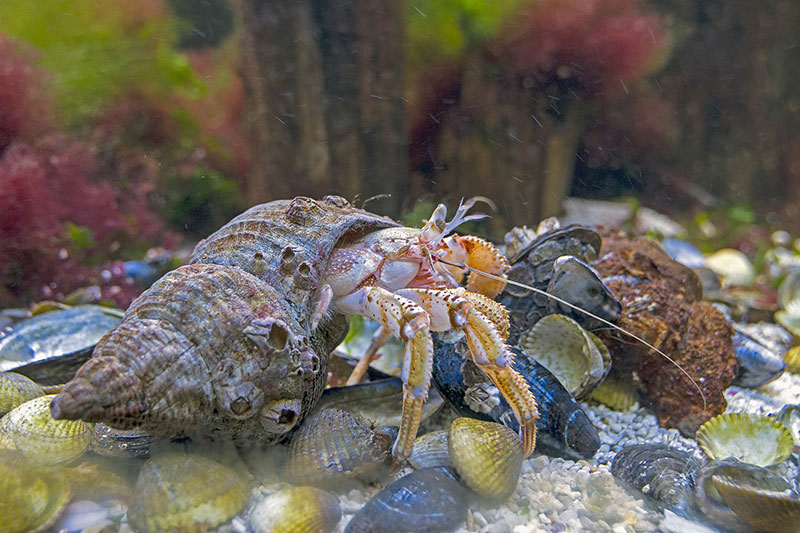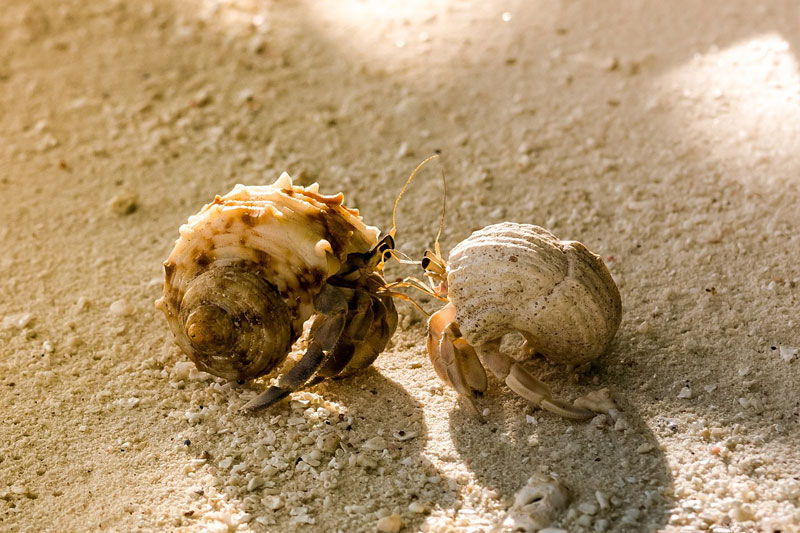Telling between your pet cat and its bigger and wild cousin – the tiger is really easy. But it’s a whole different story when it comes to your hermit crabs since they all look alike.
Misconceptions About “Domestic” Hermit Crabs
In reality, there are none, they are not like cats and dogs. All hermit crabs are from the wild. Specifically, land hermit crabs are mostly found in tropical areas such as the Caribbean, Florida, and West Indies. The majority of hermit crabs are just collected in the shorelines and then sold as pets. So technically there are no really “domesticated” crabs.
Their Only Big Difference: Reproduction
This is the big difference between them because wild hermit crabs, after mating, will carry their eggs for about a month before they hatch. And when the time comes that these eggs start to hatch, the hermit crab will then go to the ocean where it will release its eggs. The eggs will burst once they make contact with the ocean’s saltwater. Pet Hermit Crabs however is a different story, since they don’t have access to the ocean they won’t be able to complete the hatching process hence making it hard for them to reproduce in captivity.
Bred in Different Environments But Same Needs, Behaviors, and Features

Both Domestic and Wild Hermit crabs need the same thing: An environment with a suitable temperature and humidity to keep their gills moist which is beneficial for their breathing. And both need their shells to protect their fragile abdomens. Both do behave the same, they will always look for the best shell for them to shelter in and they will fight other hermit crabs for it if they feel the need to do so.
The only difference is that wild hermit crabs have the access and ability to improvise with their shells, some will use other debris, some will use other abandoned shells of other sea-shelled creatures. And if the ocean turns out to be accessible by humans, they will use empty cans or bottles as their shells. While domestic hermit crabs don’t have this ability that’s why as a hermit crab owner, it’s your responsibility to provide them a variety of shells with different shapes and sizes to prevent them from fighting others and potentially hurting or even killing them.
Both hermit crabs also love interacting as well with other hermit crabs despite being named as “hermit crabs”.
